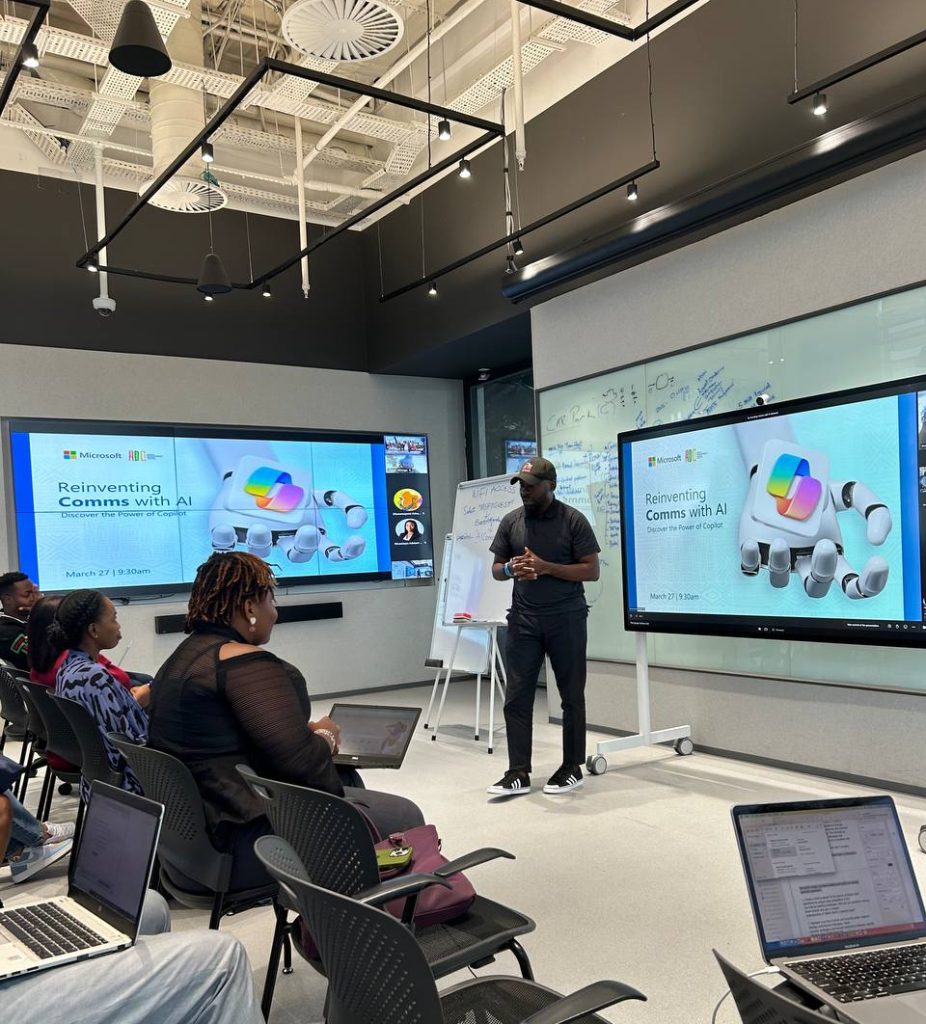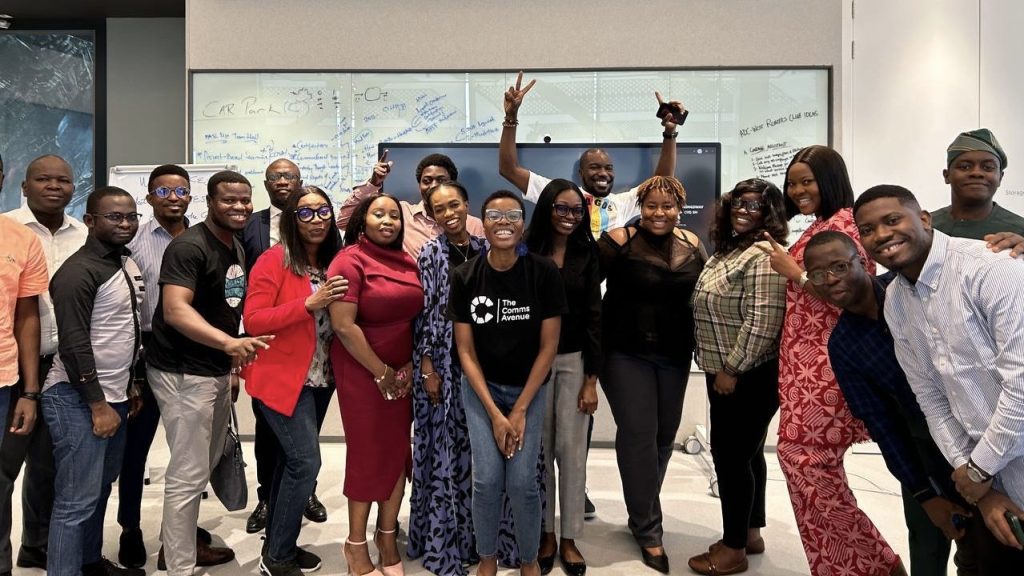Lesijolu Eite Eric-Nwabuzor serves as the Executive Director of The Comms Avenue; and is fully committed to the empowerment of communications professionals across the continent of Africa, and beyond.
As Communications professionals in Africa, we are no strangers to peculiar challenges. For a number of us, juggling multiple tasks while staying ahead of the curve is normal, and our roles demand creativity, efficiency, and adaptability.
Over the years, I’ve identified common challenges that Comms professionals in this part of the world face; and although some of us may not have these issues, a remarkable percentage do. A few major, recurring themes are:
1. Resource Constraints: Limited budgets, understaffed teams, and inadequate tools hinder productivity.
2. Dynamic Audiences: Communication is often required across diverse audiences, contexts, cultures, and sometimes languages.
3. Fast-Paced, Evolving Environment: Tasks and deliverables often move simultaneously and swiftly, demanding rapid responses.
4. Infrastructure Challenges: Unreliable internet, power outages, and connectivity issues often disrupt work.
I was recently privileged to attend a session for Corporate Communications professionals hosted by Microsoft at its Lagos, Nigeria office to practically demonstrate the capabilities of Microsoft’s Copilot and showcase the different ways it could enhance our productivity and efficiency.
The session was jointly facilitated by Orimolade Oluwamuyemi, Senior Business Program Manager, Marketing Communications, for the Africa Development Center, West Africa; and Wanja Gitonga, Senior Communications & PR Manager at Microsoft Africa.

They demonstrated how Copilot, a groundbreaking AI-powered assistant, could bridge the gaps highlighted above and several others, unlocking new realms of creativity, efficiency, and impact across various domains, including communications, public relations, marketing, and stakeholder engagement.
Developed by Microsoft, Copilot leverages advanced language models and machine learning to provide intelligent assistance across a wide range of tasks.
With its ability to understand natural language, Copilot can comprehend context and intent, enabling it to provide relevant and tailored assistance. The entire experience was a true ‘Show and Tell’, highlighting the incredible possibilities that Copilot could bring into the immediate reach of adopters.
Three short weeks later, after witnessing Copilot’s capabilities firsthand and then going on to explore it personally, I believe Copilot actually has the capacity to revolutionise the way we work; whether managing internal communications, engaging stakeholders, or shaping public perception.
One of the most significant advantages of Copilot is its ability to accelerate the creative process. As communicators, we often struggle with the daunting task of generating fresh ideas, crafting compelling narratives, and developing engaging content. Copilot acts as a virtual brainstorming partner, providing a wealth of inspiration and ideation prompts.
Whether you need to generate catchy headlines, draft social media posts, or conceptualise marketing campaigns, Copilot can offer a multitude of options tailored to your specific needs.

For instance, when tasked with creating a social media campaign for a new product launch, you can prompt Copilot with relevant information and request a series of tweets or LinkedIn posts that incorporate the key messages and adopt a specific tone or style. Copilot’s ability to generate multiple variations allows communicators to explore various angles and select the most resonant approach.
Copilot’s capabilities extend beyond ideation, as it can also streamline content creation and editing processes. Writers often grapple with writer’s block or struggle to find the perfect phrasing. Copilot can suggest alternative ways to articulate ideas, refine sentences, and even propose compelling closing paragraphs.
This feature can be particularly valuable for African communicators who may need to craft content in multiple languages or adapt messaging to resonate with diverse cultural audiences.
In public relations, Copilot can be an invaluable asset for media interview preparation. By providing a comprehensive understanding of a journalist’s writing style and areas of interest, Copilot can anticipate potential questions and generate insightful responses. This not only enhances the spokesperson’s preparedness but also ensures that key messages are effectively conveyed during interviews.
Further, beyond written communication, it can assist in creating visually appealing presentations, transforming written documents into engaging slide decks. This feature can be particularly useful for communicators in Africa who often work with limited design resources, enabling them to deliver professional and impactful presentations without the need for specialized design skills.
One significant challenge faced by communicators in Africa is the limited access to research and data. Copilot addresses this by providing instant access to a vast repository of information, enabling communicators to gather insights, conduct market analysis, and stay abreast of industry trends.
It also has the ability to present all of this data in a visually appealing, easy-to-digest format. This feature can be particularly valuable for stakeholder engagement initiatives, where a deep understanding of local contexts and dynamics is essential for effective communication.

Additionally, Copilot can streamline administrative tasks, such as drafting meeting agendas, recording meetings and taking minutes, summarising discussions, and tracking action items. This frees up valuable time and mental bandwidth for communicators, allowing them to focus on strategic thinking and high-impact initiatives. It is able to track action items and distil priorities for follow-up and execution.
Every communications professional faces unique challenges, and I have found that Copilot is an enhancer, not a replacement. “How can I embrace this partnership without losing the human touch?”, you may ask. Interestingly, what I’ve discovered is that my use of Copilot is a reflection of the capacity of my mind, and its capabilities merely amplify mine. The quality of my prompts and my creativity shape its responses. The better my prompts, the richer the output.
Copilot thrives on context. The more I share, the more Copilot understands. It reveals my innate blend of strategy, empathy, and wit. It has interestingly become my digital mirror, and I now have a deeper appreciation of how my mind creates than I previously did. However, because I totally understand and cannot undermine this concern, I’ll share a few practical steps to execute better:
1. Explore and Experiment:
Use Copilot as a tool and explore its capabilities. Experiment with variations of prompts.
2. Craft Nuanced Prompts
Instead of generic queries, I ask Copilot with depth. I’ll illustrate this with two images, ad include the exact prompt I used to generate these images.

Prompt: African lady sending a message on LinkedIn with a thought blurb saying ‘Wait? What? DMing right away’ in a hyper-realistic style.
3. Share Context
When discussing anything, I provide background to enable Copilot tailor its suggestions to the specific context I provide.

Prompt: A group of black Africans, including ladies in the mix and in front, casually and corporately dressed in different colours of clothing, seated around in a classroom style, with laptops and a few hands raised, and a large window with sunlight streaming in.
4. Edit and Refine:
Copilot’s first draft is a canvas. My edits and human perspectives add the extra that no AI could exactly produce quite like me.

Prompt: A hyper-realistic side by side image of a beautiful African lady in African print at her desk. On one side, she is overwhelmed by office files and documents, looking confused, and on the other side, she is at an organis ed desk with a Microsoft logo on her computer and the word ‘Copilot’, smiling with everything around her looking orderly.
5. Excel in your craft
Do not settle for ordinary or mediocre. Only the very best is good enough, so keep improving until you only put out work that makes you truly proud.
Copilot is an indispensable tool for communications professionals in Africa. Its ability to enhance productivity, accelerate ideation, streamline content creation, and provide instant access to information makes it a game-changer in an industry where efficiency and impact are paramount. Embracing it means communicators in Africa can overcome resource constraints, navigate cultural complexities, and deliver exceptional campaigns that resonate with diverse audiences.
While Copilot is a powerful tool, it is important to note that it is not a replacement for human expertise and judgment. Rather, it serves as an augmentation tool, enhancing the capabilities of skilled communicators by providing intelligent assistance and accelerating workflows. As with any technology, it is crucial to exercise caution, remain ethical and ensure that sensitive information is protected.





